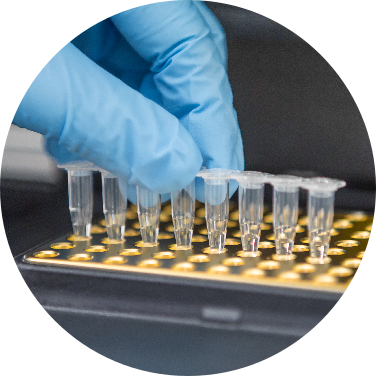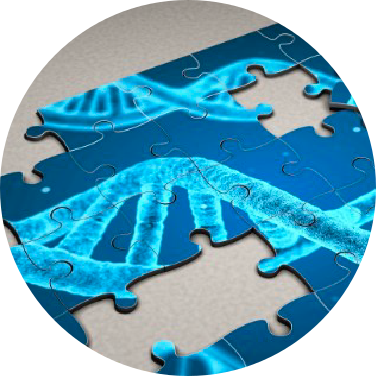Unleashing the Power of Precision: Redefining Cancer Management
PRECISION MEDICINE
Precision Medicine presents a transformative opportunity to revolutionize cancer treatment, adopting an innovative approach that holds the promise of significantly enhanced effectiveness


Precision medicine, or also known as personalized medicine, is an approach that helps the doctors to understand a person’s genetic makeup and select the suitable treatments that may be more effective for the patients.


Before the advent of precision medicine, cancer patients typically received standardized treatments based on their cancer type and stage. However, it became evident that these treatments varied in effectiveness among individuals.


Extensive research has confirmed that the varying responses of patients to the same treatment can be attributed to genetic differences that influence the growth and spread of cancer. These genetic variations play a crucial role in determining the effectiveness of treatments and highlight the significance of precision medicine in tailoring therapies to individuals’ unique genetic profiles.
OUR TECHNOLOGY


Liquid Biopsy (circulating tumour DNA, ctDNA)
Oncode revolutionary Liquid Biopsy technology offers a diverse array of clinical applications throughout the entire treatment cycle. It presents invaluable clinical utility at critical decision points, empowering oncologists with a non-invasive, high-sensitivity platform for regular tumor profiling. Liquid biopsies provide an all-encompassing view of tumor heterogeneity, overcoming limitations and unavailability associated with tissue biopsies.


Next Generation Sequencing (NGS)
Next Generation Sequencing (NGS) serves as a game-changing tool in cancer precision medicine, propelling us towards a new era of personalized treatment strategies. By analyzing the entire genomic landscape of tumors with unparalleled precision and speed, NGS enables oncologists to uncover critical genetic alterations driving cancer growth and progression. This transformative technology empowers clinicians to tailor therapies based on individual patients’ unique genomic profiles, maximizing the chances of therapeutic success while minimizing potential side effects. NGS illuminates the path towards more effective and targeted treatments, ultimately improving patient outcomes and reshaping the landscape of cancer care.
>99%
Sensitivity
100%
& Coverage


PCR and Fragment Analysis
Fragment Analysis (FA) is a powerful technique employed to unravel the size and quantity of DNA fragments within a sample, leveraging the principles of capillary electrophoresis. By harnessing the electrical charge and molecular weight of DNA fragments, FA enables precise analysis of genetic variations, mutations, and structural changes crucial for understanding disease mechanisms, including cancer. With its high sensitivity and resolution, this advanced method provides valuable insights into the genetic landscape of tumors, facilitating the identification of key genomic markers and aiding in the characterization of tumor heterogeneity.


Multiplex Ligation-Dependent
Probe Amplification (MLPA)
MLPA is a technique specifically designed to detect and analyze copy number variations (CNVs) within DNA. By utilizing a multiplex reaction, MLPA enables the simultaneous quantification of DNA copy number changes in targeted genomic regions. MLPA plays a critical role in cancer precision medicine by uncovering important CNVs that can influence tumor development, progression, and response to treatment. MLPA has also proven to be a valuable tool for the detection of large rearrangements in various genetic conditions, including inherited disorders, cancer, and genetic syndromes, and also can be employed to detect both small and large insertions/deletions (indels) in in specific target sequences or genes. By accurately quantifying DNA copy number changes and by providing information about the presence or absence of specific rearrangements or indels, MLPA aids in genetic diagnosis, risk assessment, and personalized treatment decisions.
small & large
Insertions/ Deletions
Detection of
small CNVS
